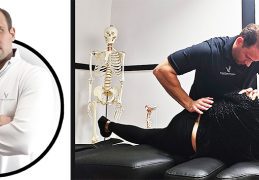Just about every company and organization needs experienced and knowledgeable corporate trainers. These professionals play a vital role in ensuring that employees know how to do their jobs well, so it’s no wonder that the Bureau of Labor Statistics expects the demand for corporate trainers to grow by 8 percent between 2021 and 2031.
If you’re the type of person who enjoys teaching, guiding and helping others, then a career as a corporate trainer may be right for you. But how do you even get started in this type of work? With a better understanding of what corporate trainers do and what kind of education and skills you need to become a viable candidate for a corporate training position, you can make more confident decisions surrounding your career goals.
What Does a Corporate Trainer Do?
So, what exactly does the job description of a corporate trainer look like? What kinds of roles, responsibilities and tasks do these professionals have on a daily basis? All of this can vary from one position to the next. However, there are a few basic roles and duties that a corporate trainer can expect to undertake on a regular basis.
Role of a Corporate Trainer
A corporate trainer provides targeted training to employees, helping them improve overall job performance and providing the skills and knowledge they need to perform their roles with confidence.
Corporate trainers often handle onboarding and training for new employees—but it is also common for these professionals to provide ongoing training sessions and professional development for existing employees.
Basic Responsibilities and Tasks
Some of the most common responsibilities that a corporate trainer may perform include:
- Building training programs and individual classes.
- Evaluating the progress of employees, as well as their knowledge and expertise.
- Handling all training scheduling for new and existing employees.
- Presenting training modules and classes online, in person or a combination of both.
- Researching new training opportunities and strategies.
- Ensuring training initiatives align with the company’s training needs and budget.
How to Become a Corporate Trainer
If this type of work sounds like it would be up your alley, then you may be wondering how to get started as a corporate trainer. The specific requirements for a corporate training job will vary from one position (and employer) to the next, but there are some basic things most employers are looking for when it comes to experience, education and skills.
Career Path and Experience
Companies generally prefer to hire corporate trainers with practical experience working in the field in which they would be teaching. An accounting firm, for example, may prefer to hire a trainer who has a background in finance. This way, companies know that their trainer will have some industry-specific experience and will thus have a better understanding of the types of concepts that may need to be covered.
Education and Skills
Likewise, employers will typically require that corporate trainer candidates have a minimum of a bachelor’s degree in a related field. Although, many employers are now giving preference to candidates who have a more advanced degree, such as a master’s or even a doctoral degree.
Master’s degrees in curriculum and instructional design, as well as business degrees, can be especially attractive to an employer looking to hire a new corporate trainer. Applicants with these kinds of advanced degrees will not only have the formal education needed in their field but will also have specialized knowledge when it comes to designing and implementing the best training.
In addition to formal education and degrees, there are several soft skills that corporate trainer jobs tend to prioritize, including:
- Adaptability – The tasks and job duties of a corporate trainer can change from one day to the next, so these professionals must be adaptable and flexible enough to adjust their work and pace as needed.
- Written and verbal communication – From putting together training materials to presenting classes both in-person and online, corporate trainers rely on effective communication skills to do their jobs well.
- Time management and organization – Juggling different training sessions, evaluations and the other responsibilities of a corporate trainer can be overwhelming without the right time management skills utilizing training technology or learning management systems to develop and deliver training modules and materials.
- Knowledge of Best Instructional Design and Strategies – Especially with current changes in society, remote working and training positions, and employees with many responsibilities, knowing best instructional design and teaching strategies can help motivate and maximize outcomes of training for better effectiveness.
Choosing an Industry or Company
Most aspiring corporate trainers will find success honing their skills for a particular industry. If you already have experience working in a specific field, then it may make the most sense to pursue training opportunities in this field. You can always differentiate yourself with additional education and training. This all boils down to where your interests lie.
Corporate Trainer Experience
Because corporate trainers provide highly technical training to new and existing professionals in their respective fields, it’s important that these trainers have the right level of experience. It’s difficult to effectively train and teach someone about a field in which you have no practical experience. There is some career- and industry-specific experience that it can be helpful if you’re considering a career in corporate training.
Job or Career-Specific Experience
While not all employers will require corporate training candidates to have prior experience as a trainer, some type of leadership experience or other direct experience in the field can be useful. Some other types of jobs that may provide skills relevant to corporate training include human resources and supervisory roles.
Industry-Specific Experience
Most corporate trainers also have industry-specific experience in the fields in which they work. This is especially important in more technical fields, where you truly need to have an in-depth understanding of how things work to effectively train.
The good news is that about every industry needs corporate trainers—so if you have experience in any industry or field, you may already have the in-depth knowledge that a company is looking for in a corporate trainer.
Tips for Becoming a Corporate Trainer
Working as a corporate trainer requires a lot of discipline and dedication, especially if you decide to pursue an advanced degree to set yourself apart from the competition. There are some specific tips to remember as you work toward your career goals.
1. Identify Your Industry
Start by deciding what industry you may see yourself working in down the road. While it may seem early to narrow this down, the reality is that most companies looking to hire corporate trainers want a candidate with specific career experience. They want trainers who have been in the shoes of their trainees and understand the kinds of learning styles, techniques and methods that will deliver the most effective training.
Not sure where to begin? Think about some industries where you already have experience. If you have a bachelor’s degree in a specific field, this is a natural starting point for many. However, the possibilities are limitless; any field in which you have proven work experience is fair game, and some corporate trainers even work in other roles within their chosen industry before they work their way up to human resources or trainer positions.
2. Research the Industry and Companies
Once you’ve narrowed down the industry in which you’d like to work, it’s a good idea to do a little more independent research into the types of corporate training jobs available in that industry. Take some time to browse current job postings for these positions and the types of companies that are hiring. Examine the exact roles, duties and responsibilities that you will be expected to take on in this type of work. This will help
you get a better feel for what to expect when you start applying for corporate training jobs and prepare you for your future work.
3. Gain Experience in the Industry
Next, it’s time to focus on gaining relevant experience both in your industry of choice and as a trainer. If you already have a bachelor’s degree in a field that’s related to your chosen industry, then working jobs within that industry will be useful. Many people will start out in entry-level positions and work their way up the ladder over the course of several years, but this will depend on your own level of experience and motivation.
Whenever possible, look for opportunities to gain experience that’s related to leading and training. For example, you might take on the role of a mentor to new employees within your department, or you might even host some training sessions for clients or customers. Any amount of experience demonstrating teaching or otherwise training others can be put on your resume to help you get noticed when it’s time to start applying for actual corporate training jobs.
4. Seek Roles in Professional Development or HR
Ideally, you’ll end up obtaining a master’s degree or other advanced degree in instructional design, curriculum development, or a related field to best prepare for a career in corporate training. However, even without an advanced degree, you may be able to take on roles within your current place of employment that will prepare you for work as a corporate trainer.
For instance, training is often a task reserved for those in human resources—and you usually don’t need an advanced degree to work in human resources. If possible, you might consider pursuing advancement from an entry-level or other position to a human resources role that will allow you to assist with scheduling, training and collaborating with other corporate trainers. The same goes for companies with open professional development roles.
Working in HR or professional development is a natural segue for many professionals into corporate training roles, so this can be a great step to take toward your future career goals.
5. Develop People and Public Speaking Skills
Take time to assess and improve upon your people skills, teaching, and public speaking abilities. Much of your work as a corporate trainer will hinge on your ability to get up and present complex information to a large group of people, so having these skills will set you (and your trainees) up for success.
Take advantage of opportunities to hone these skills, whether it’s a public speaking class at a local college or even an opportunity to present some information to a supervisor or board. The more you practice, the better you’ll get, and the easier public speaking will become.
Ready to Begin Your Corporate Training Journey?
Corporate trainers make a very real difference in employee performance improvement and the ability of businesses to meet their short- and long-term company goals. Working as a corporate trainer can be a challenging yet rewarding experience for those who have both the formal experience and soft skills to succeed in this field.
If you’re interested in working as a corporate trainer and already hold a bachelor’s degree, it may be time to differentiate yourself with a master’s degree or even a doctorate in a related field. At Keiser University Graduate School, we’re proud to offer a number of advanced degrees to help you set yourself apart—including master’s degrees in both business and education. We also offer an excellent Doctor of Education degree that can prepare you for the challenges of a corporate training career.
Ready to learn more about any of the programs offered by Keiser University? Get in touch with a graduate admissions counselor today to request more information!






 The instructors at Keiser University impacted my life. They believed in my ability to become a great graphic designer, regardless of how I felt about my skills. KU helped to prepare me for the real world and got me to where I am today.
The instructors at Keiser University impacted my life. They believed in my ability to become a great graphic designer, regardless of how I felt about my skills. KU helped to prepare me for the real world and got me to where I am today.
